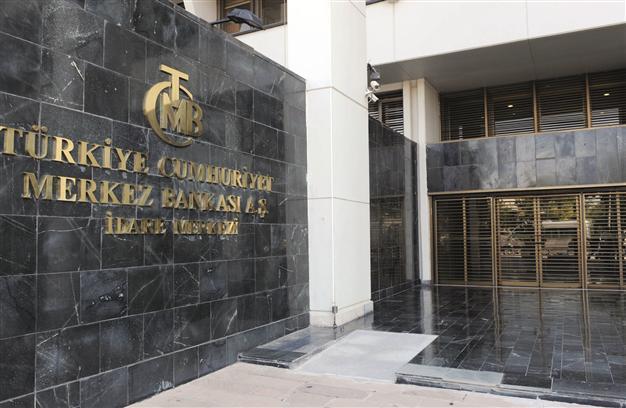Turkish Central Bank vows tight policy as growth and inflation outlook turns darker
ISTANBUL – Reuters

The Central Bank has shown signals of refocusing on price stability and hinted that it foresees that Turkish economic growth will lose momentum in the second half of the year, bankers and economists said after a meeting with Bank authorities.
“Inflation expectations, pricing behaviors and other factors affecting the inflation will be watched closely,” the Central Bank officials said in an Aug. 28 presentation in Ankara, addressing economists and bankers.
“The tight stance on monetary policy will be maintained by keeping the yield curve near horizontal until seeing a remarkable improvement in inflation outlook,” the Bank stated.
The presentation also noted that the main indicators point to a slight slowdown in Turkey’s economic growth.
“The survey indicators regarding growth signal a little momentum loss in economic activities, considering the potential impacts of geopolitical risks,” it said.
The meeting with economists came a day after the Monetary Policy Board meeting, in which the Bank left its key policy, benchmark weekly repo rate, unchanged at 8.25 percent after cutting the rate by a total of 175 basis points over the past three meetings.
The Bank opted to maintain the overnight borrowing rate as the inflation figures of the past few months failed to meet expectations, despite the diminishing impact of the Lira’s value loss on the price changes.
Earlier this month, the Central Bank said the inflation forecasts from its monthly survey had risen to 8.7 percent at the end of the year from 8.3 percent previously, despite its aggressive rate hike in January.
The Bank still surprised the markets by lowering its overnight lending rate by 75 points to 11.25 percent.
This decision has been interpreted as a sign suggesting that the cut at the upper end of its interest rate corridor was a gesture amid rising inflation expectations.
İş Investment Economist Muammer Kömürcüoğlu said that the Central Bank officials’ statements and the Aug. 27 decision indicate that the Bank has refocused on maintaining price stability.
“The Central Bank’s refocusing on inflation means the end of monetary policy easing is approaching,” he said. “Although the Bank avoided commenting on whether it will further reduce interest rates in the upcoming period, it underlined that tight monetary policy will continue.”
Kömürcüoğlu also noted that the Bank underlined risks to slowing growth, citing geopolitical risks in the region and fragile recovery in the European Union (EU).
Food effective in inflation, but not aloneThe bankers who attended the meeting also said that authorities directed attention to the impact of food prices on inflation, which has been increasing in Turkey unlike in its global counterparts.
However, the Bank asserted that the excessive surge in food prices is not the only factor to blame for higher-than-expected food prices, they also said.
One meeting participants said that Central Bank Deputy Governor Turalay Kenç stated that they do not want to use food prices as an excuse, and that inflation is already high when food prices are excluded.
“That is why the Central Bank refocuses on price stability,” Kenç said, according to the banker.
Turkish inflation accelerated above expectations in July, climbing to 9.32 percent on an annual basis due to disappointing food price levels. This marked the fourth consecutive month that the rate remained above 9 percent.
The Bank officials also reasserted the need for “an active foreign trade policy that is implemented for certain agricultural goods” in order “to limit upward risks in food prices.”
Another banker noted the Bank’s second important message as, “the growth is not as good as targeted.”
Participants quoting Kenç said the deputy head of the Central Bank told them that it might be hard to hit the growth target of 4 percent, but warned that it was still early to speak definitively.
 The Central Bank has shown signals of refocusing on price stability and hinted that it foresees that Turkish economic growth will lose momentum in the second half of the year, bankers and economists said after a meeting with Bank authorities.
The Central Bank has shown signals of refocusing on price stability and hinted that it foresees that Turkish economic growth will lose momentum in the second half of the year, bankers and economists said after a meeting with Bank authorities.